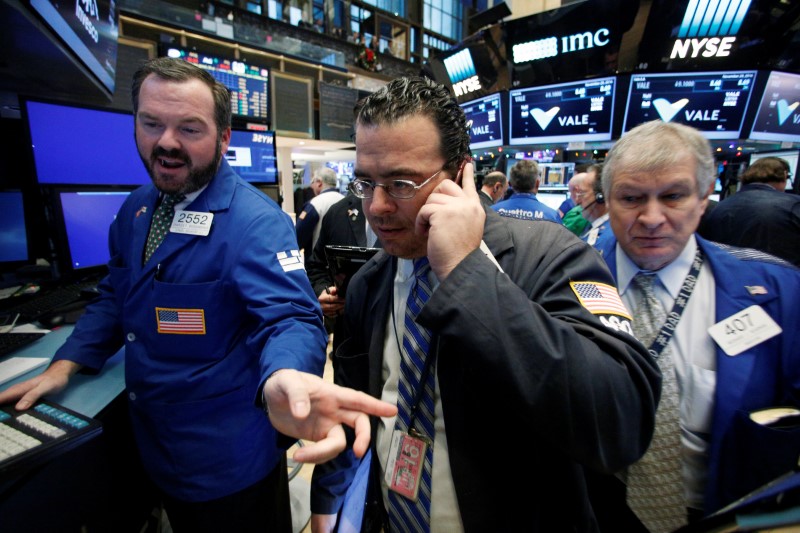By Chuck Mikolajczak
(Reuters) - U.S. stocks ended little changed on Friday after a payrolls report did little to recast expectations for an interest rate hike from the Federal Reserve this month and bank stocks cooled to round out their fourth straight week of gains.
A U.S. Labor Department report showed employers in private and public sectors hired more people last month than economists had expected, further strengthening expectations of a hike when the U.S. central bank meets Dec. 13 and 14.
But investors' reaction to Friday's jobs report was muted as markets appeared to have already priced in a hike this month.
"If it is in the high one hundred (thousands) on payrolls then everybody is pretty much just yawning at it," said Jeff Weniger, senior strategist at BMO Private Bank in Chicago.
Major Wall Street indexes have hit a series of record highs over the past three weeks in the wake of Donald Trump's victory in the U.S. presidential election, as investors have rotated into sectors expected to benefit from campaign promises of tax cuts, infrastructure spending and bank deregulation.
The S&P 500 financial index (SPSY) has risen 13.1 percent since the Nov. 8 vote, while industrials (SPLRCI) have climbed more than 7 percent.
But the rally in financials eased on Friday, and the index ended down 1 percent as the worst performing of the 11 major S&P sectors.
"There has been a lot of crowded trades going on and the zoom up in financials looks like it is probably one of them," said Weniger.
Goldman Sachs (N:GS), off 1.4 percent, fell for the first time in four days, while Bank of America (N:BAC), off 1.3 percent, Citigroup (N:C), down 2.2 percent, and Wells Fargo (N:WFC) lost 1.4 percent as the top drags on the S&P.
The Dow Jones industrial average (DJI) fell 21.5 points, or 0.11 percent, to 19,170.42, the S&P 500 (SPX) gained 0.87 point, or 0.04 percent, to 2,191.95 and the Nasdaq Composite (IXIC) added 4.55 points, or 0.09 percent, to 5,255.65.
For the week, the Dow gained 0.1 percent, the S&P 500 shed 1 percent and the Nasdaq dropped 2.7 percent.
Starbucks (O:SBUX) fell 2.2 percent to $57.21 after the coffee chain operator said Howard Schultz would step down as chief executive officer.
Pandora (N:P) surged 16.1 percent after CNBC reported the internet radio company was in talks to sell itself to Sirius XM (O:SIRI).
Advancing issues outnumbered declining ones on the NYSE by a 1.21-to-1 ratio; on Nasdaq, a 1.05-to-1 ratio favored advancers.
The S&P 500 posted 18 new 52-week highs and six new lows; the Nasdaq Composite recorded 97 new highs and 51 new lows.

About 7.03 billion shares changed hands in U.S. exchanges, compared with the 7.94 billion daily average over the last 20 sessions.